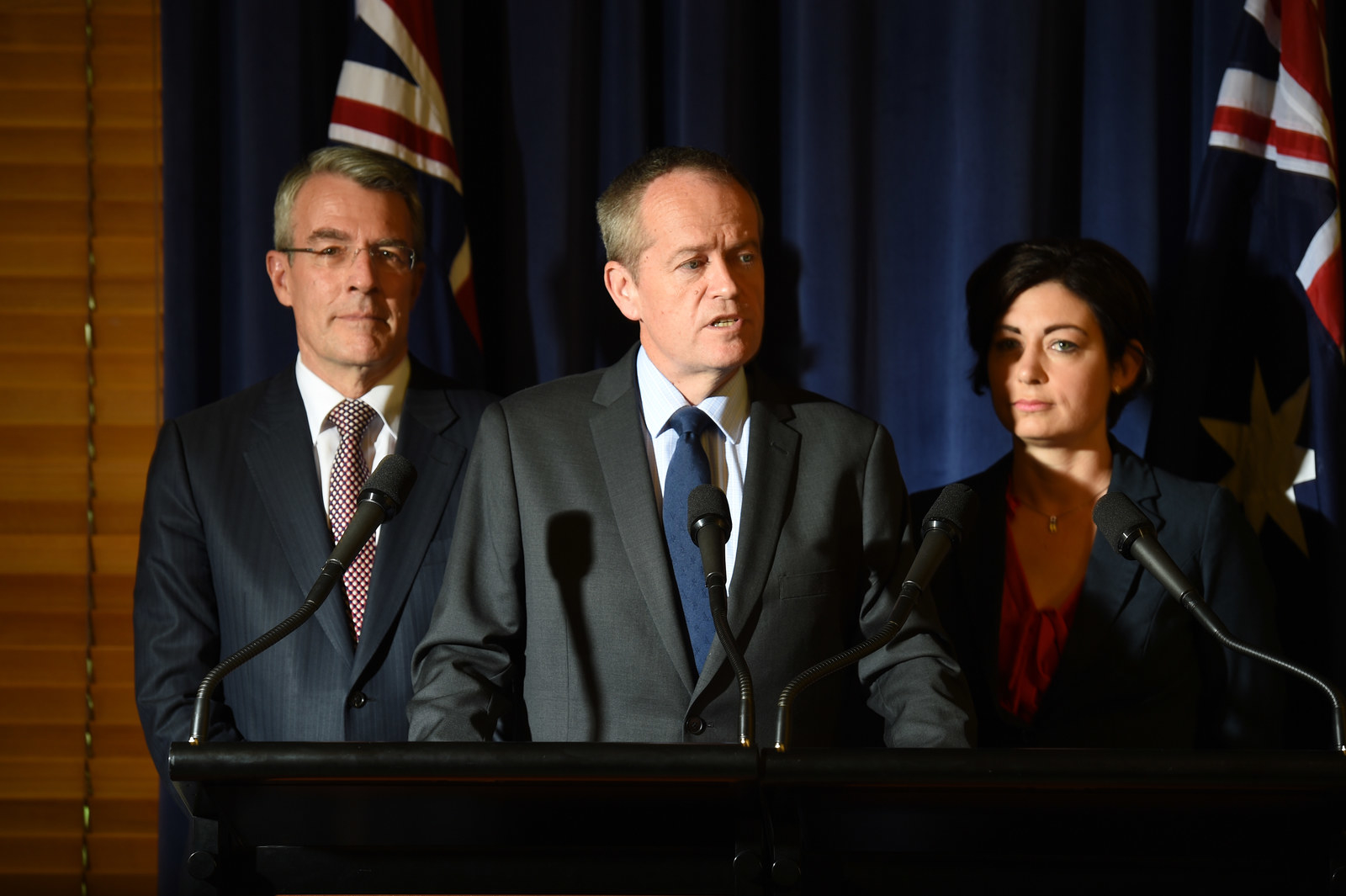In case you haven't heard, Australia's opposition Labor party yesterday announced it would block a plebiscite (which is just a fancy word for a big, national vote) on legalizing marriage equality.
That decision means same-sex marriage will probably be delayed in Australia for years to come. But LGBT Aussies are actually pretty ok with that. Here's why:
To understand what's happening we have to go back to last year. In the wake of Ireland's successful referendum on marriage equality, it seemed like momentum for same-sex marriage was unstoppable. But Australia's then prime minister, the conservative Tony Abbott, came up with a neat little trick to put a stop to it.
He announced that marriage equality should be decided by a vote of the people, saying it was only right that Australians get a say in this important issue, despite the fact that it's actually up to the parliament to vote on marriage laws. This pushed marriage equality back until at least after the next election.
That election was held in July, and prime minister Malcolm Turnbull – who stabbed his leader, Abbott, in the back and took his job because Australia, lol – narrowly won the election, but didn't win a majority in the Senate.
That meant the government would need the opposition Labor party's support to make the plebiscite happen.
Labor has been signalling FOR MONTHS that it would block the move. It has a whole bunch of reasons for doing so, including:
- The fact that it's just not necessary. Australia's High Court made it clear in 2013 that it's parliament's job to change the Marriage Act. (In Ireland, a constitutional referendum was the only way to introduce same-sex marriage.)
- The cost, which is around $200 million – including $7.5 million taxpayer funding of the "yes" and "no" sides.
- The fact that the vote isn't binding. Politicians could just ignore the result if they didn't like it – and some have said they would do just that.
- But most of all, Labor didn't want to put LGBT Australians through a divisive, potentially harmful debate on their rights.
And Labor had the backing of just about every major LGBT group in Australia, who all said they didn't support the plebiscite, because of the harm it would cause, and that parliament should just do its job and legislate marriage equality.
So yesterday, after months of dropping hints, Labor leader Bill Shorten formally announced his party would vote against the plebiscite, meaning it will not pass the parliament.
“Children do not need to go to school in the climate of a plebiscite and have the integrity of their parents’ relationship challenged,” he said.
“I could not look at these loving families – the parents of gay people, people in committed same-sex relationships, young people whose parents are gay – and say to them that this plebiscite was good for them.”

That means there's no clear path forward for marriage equality in Australia, even though – get this – the prime minister supports it, the opposition leader supports it, a free vote in the parliament would pass, and a clear majority of Australians support it.
But the government won't budge from its position, Labor won't back the plebiscite, and LGBT Australians are stuck in the middle wondering if they'll ever be able to get married.
But most LGBT Aussies seem to be pretty ok with that. Yesterday when Shorten announced his decision, he was cheered into the room by dozens of rainbow families, who are perfectly happy to wait for marriage equality if it means protecting their kids from an ugly public debate.

